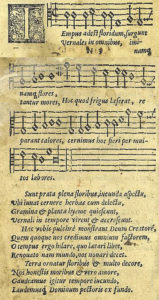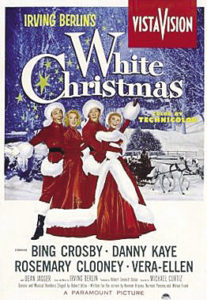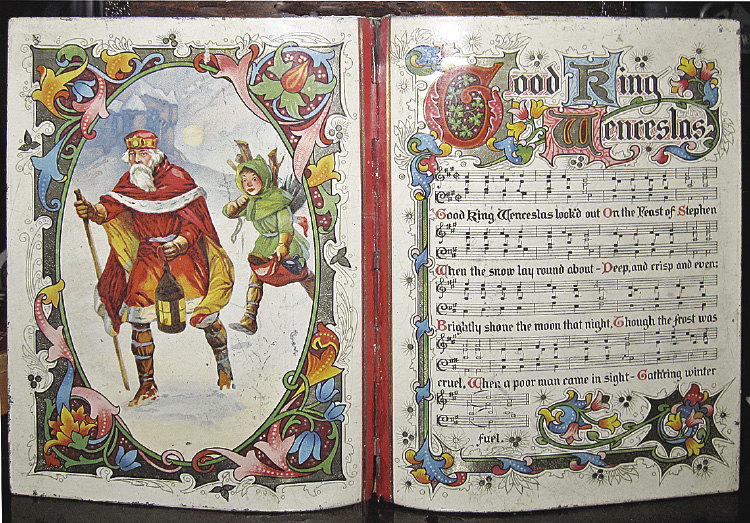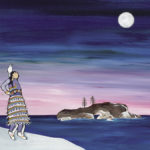Most of us know at least some of the words to Christmas carols but what’s the history behind the songs? When was the first carol and where?
Scholars credit the world’s oldest Christmas hymn-song to the 4th century in France and written by St. Hilary of Poitier (c310-367). The carol was “Jesus Refulsit Omnium” (“Jesus, Light of All the Nations” aka “Jesus Illuminates all”). It’s believed to have been created just after the first recorded Christmas celebration took place on December 25, 336 during the reign of Roman Emperor Constantine II. Another Christmas carol-hymn written later in the 4th century in Roman province (today’s Spain) but still performed in some churches, is “Corde natus ex Parentis (“Of the Father Love Begotten”). The early Christmas songs were more like religious hymns.
So, what is the oldest popular Christmas carol that we are still singing today? The strongest contender is “The Friendly Beast,” a song created back more than 900 years ago. Written by an unknown author in France in the 12th century and set to the melody of the Latin song “Orientis Partibus,” it’s about animals surrounding Jesus at the nativity scene. It wasn’t until 1920 that the English version was written by Robert Davis and has been sung by artists like Garth Brooks and Johnny Cash.
Another one of the oldest popular Christmas songs, “Good King Wenceslas,” is based on a 13th century carol from Finland published in the 1582 Finnish song book Paie Cantiones. The English lyrics were written in 1853 by England’s priest and hymn writer John Mason Neale and set to the Finnish melody.

Moving ahead to 14th century, two widely-sung Christmas carols in medieval Europe originated in Germany: “Christ Born on Christmas Day” and “Good Christian Men, Rejoice.” According to folklore, the latter was written by Heinrich Seuse after he heard angels sing the words.
A Jesuit missionary Jean de Brebeauf in 1642 wrote the first Canadian Christmas Carol, the “Huron Carol” (also now known as “Twas in the Moon of Wintertime”). Written in the Indigenous language of Huron/Wendat people living near modern-day Midland, Ontario, it was originally titled “Jesous Ahatonhia” (“Jesus, He is Born”) and set to the melody of a French folk song. When the English lyrics were written in 1926 by Canadian journalist, historian and songwriter Jesse Edgar Middleton, the words were apparently made to fit the melody rather than a direct translation. The “Huron Carol” is about Jesus born in a lodge made of broken bark; swaddled in the robe of rabbit skin; hunters replacing the shepherds; and, the Magi being chiefs bearing gifts of fox and beaver pelts. In 1977, the carol was honoured in a series of Canadian postage stamps and in 2005, the song was inducted into the Canadian Songwriters Hall of Fame. (Copyright for the song entered public domain in 2011.)
Most of today’s popular Christmas songs were created since 1800, including “Silent Night” written as a poem in 1816 by young priest Joseph Mohr. Two years later, he composed it as a song for voice and guitar, and on December 24, 1818, it was first performed in St. Nicola Church in small town of Oberndorf, Austria. The first English translation was done in 1871 and today there are over 300 known translations of it into different languages and dialects. In 2011, “Silent Night” was declared an “intangible cultural heritage” by UNESCO. As a legacy to the song and creators, a Silent Night Chapel was completed in 1937 on the site of the first performance (original church was destroyed by flooding).
Surprisingly, the Christmas song “Jingle Bells” isn’t about Christmas at all. Yet, it’s one of the most recognized and popular Christmas season songs. Originally titled “One Horse Open Sleigh,” it was created in 1857 by Boston-born songwriter and organist James Lord Pierpont.

And the world’s best-selling all-time modern Christmas song? Well, according to the Guinness Book of World Records, it’s “White Christmas” recorded by Bing Crosby in 1942 and 1947. Not only is it the best-selling Christmas holiday single in the U.S., it is also the world’s best-selling single with more than 50 million copies sold worldwide. Irving Berlin wrote it in 1941 for the movie “Holiday Inn” (1942) and the song went on to win an Academy Award (Oscar) the following year for Best Original Song in a movie. It was later featured in the 1954 movie “White Christmas” starring Bing Crosby, Rosemary Clooney, Danny Kaye and Vera-Ellen (my favourite Christmas movie).
In addition, the song “White Christmas” had a large impact on future Christmas music. In their book, Merry Christmas, Baby: Holiday Music from Bing Crosby to Sting, authors Dave Marsh and Steve Propes wrote “White Christmas changed Christmas music forever, both by revealing the huge potential market for Christmas songs and by establishing the theme of home and nostalgia that would run through Christmas music evermore.”
Just prior to 1950 and onward, Christmas music has become more ‘modern’, with less emphasis on religious themes and more about fun, holiday activities and romance, like the jolly “Here Comes Santa Claus” (Gene Autry, 1947); “Silver Bells” (Bing Crosby/Carol Richards version, 1950); rock-and-roll classic “Blue Christmas” (Elvis Presley version 1957); “Rockin’ Around the Christmas Tree” (Brenda Lee, 1958); “All I Want for Christmas is You” (Mariah Carey, 1994); and “Happy Holidays” (Robbie Robertson, 2019).
Happy Holidays to everyone!




